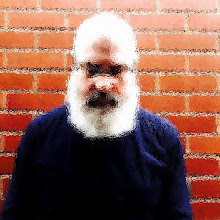Paul Bowles
 Paul Bowles born 30 December 1910 (d. 1999)
Paul Bowles born 30 December 1910 (d. 1999)Paul Frederic Bowles was an expatriot American composer, author, and traveller.
Bowles was born in New York in 1910. His father was a dentist who exhibited little warmth for his son; an inflexible man, he evoked responses of passive resistance and secrecy, characteristics that would mark Paul's life and writing. As a boy, Bowles had few friends and took refuge in fantasy writing. He matriculated at the University of Virginia, but academic life did not interest him, and he left for Paris abruptly in 1929. Although he soon returned to New York, from 1931 onward he would spend most of his life outside the United States.
Bowles's literary reputation rests on his novels, but until he was thirty-five he showed more interest in musical composition and poetry. Aaron Copland was a mentor, and in France, he intrigued Gertrude Stein, though she thought he was no poet. But Bowles was gifted in a number of fields, and increasingly he spread his skills over several: music for plays and films, short stories, autobiography, travel writing, and translations.
 In Berlin, he met Stephen Spender and Christopher Isherwood. Isherwood later gave the name Bowles to the heroine of Goodbye to Berlin. The following year Bowles returned to North Africa and travelled throughout other parts of Morocco, the Sahara, Algeria and Tunisia. Throughout the next decade, Bowles composed a good body of music including sonatas, song cycles, and music for stage productions (including Doctor Faustus directed by Orson Welles, the orchestration for George Balanchine's Yankee Clipper at Lincoln Kirstein's request), and also made early recordings of North African music.
In Berlin, he met Stephen Spender and Christopher Isherwood. Isherwood later gave the name Bowles to the heroine of Goodbye to Berlin. The following year Bowles returned to North Africa and travelled throughout other parts of Morocco, the Sahara, Algeria and Tunisia. Throughout the next decade, Bowles composed a good body of music including sonatas, song cycles, and music for stage productions (including Doctor Faustus directed by Orson Welles, the orchestration for George Balanchine's Yankee Clipper at Lincoln Kirstein's request), and also made early recordings of North African music.In childhood, Bowles was fond of a homosexual uncle. During one stay-over with him, he happened to enter a room where men were dancing intimately together. His uncle's anger at his nephew hurt Bowles, who had not been alarmed at this sight, and the incident suggests Bowles's attitude to different sexual behavior: He liked to examine sexuality from a dispassionate perspective for its psychological suggestiveness. Such is the case in his most explicitly homosexual story, Pages from Cold Point (1947), in which a boy tries to seduce his father.
 Pages from Cold Point marked a turning point in Bowles's life. In 1938, he had married Jane Auer, and in 1947, they went to live in Tangier. Jane Bowles had published Two Serious Ladies, and explored gay relationships in both her life and in her fiction.
Pages from Cold Point marked a turning point in Bowles's life. In 1938, he had married Jane Auer, and in 1947, they went to live in Tangier. Jane Bowles had published Two Serious Ladies, and explored gay relationships in both her life and in her fiction.Paul Bowles explored the psychological dimensions of relationships less directly, and many readers prefer to interpret his ground-breaking novel The Sheltering Sky (1949) in existentialist terms, even though it deals centrally with the extraordinary dynamic of his relationship with Jane - a dynamic to which the homosexuality of both is relevant.
With the arrival of the Bowles, the Tangier cult developed rapidly. American writers and artists of the Beat Generation - William Burroughs, Allen Ginsberg, Gregory Corso, Tennessee Williams, Truman Capote, and others - visited and socialised; the ambience of Tangier, as well as its toleration of experiments in drug use and sexual expression proved liberating and stimulating.
Jane Bowles, always on the edge of sexual scandal, died in 1973. Paul Bowles, though he continued to attract interesting figures and, in his discreet way, a cult following, was very stable, and continued to produce a stream of work until his death in 1999.
 His translation work started with the Sartre classic No Exit (1958) but became more significant with his translations of previously unknown works by Moroccan writers Mohammed Mrabet, Mohamed Choukri and, subsequently, others.
His translation work started with the Sartre classic No Exit (1958) but became more significant with his translations of previously unknown works by Moroccan writers Mohammed Mrabet, Mohamed Choukri and, subsequently, others.Bowles died of heart failure at the Italian Hospital in Tangier on November 18, 1999 at the age of 88. He had been ill for some time with respiratory problems. The following day a full-page obituary appeared in The New York Times. Although he had lived in Morocco for 52 years, he was buried in Lakemont, New York, next to the graves of his parents and grandparents.
Labels: Bisexuals, Classical Music, Composers, Novelists, Translators, Writers


0 Comments:
Post a Comment
<< Home